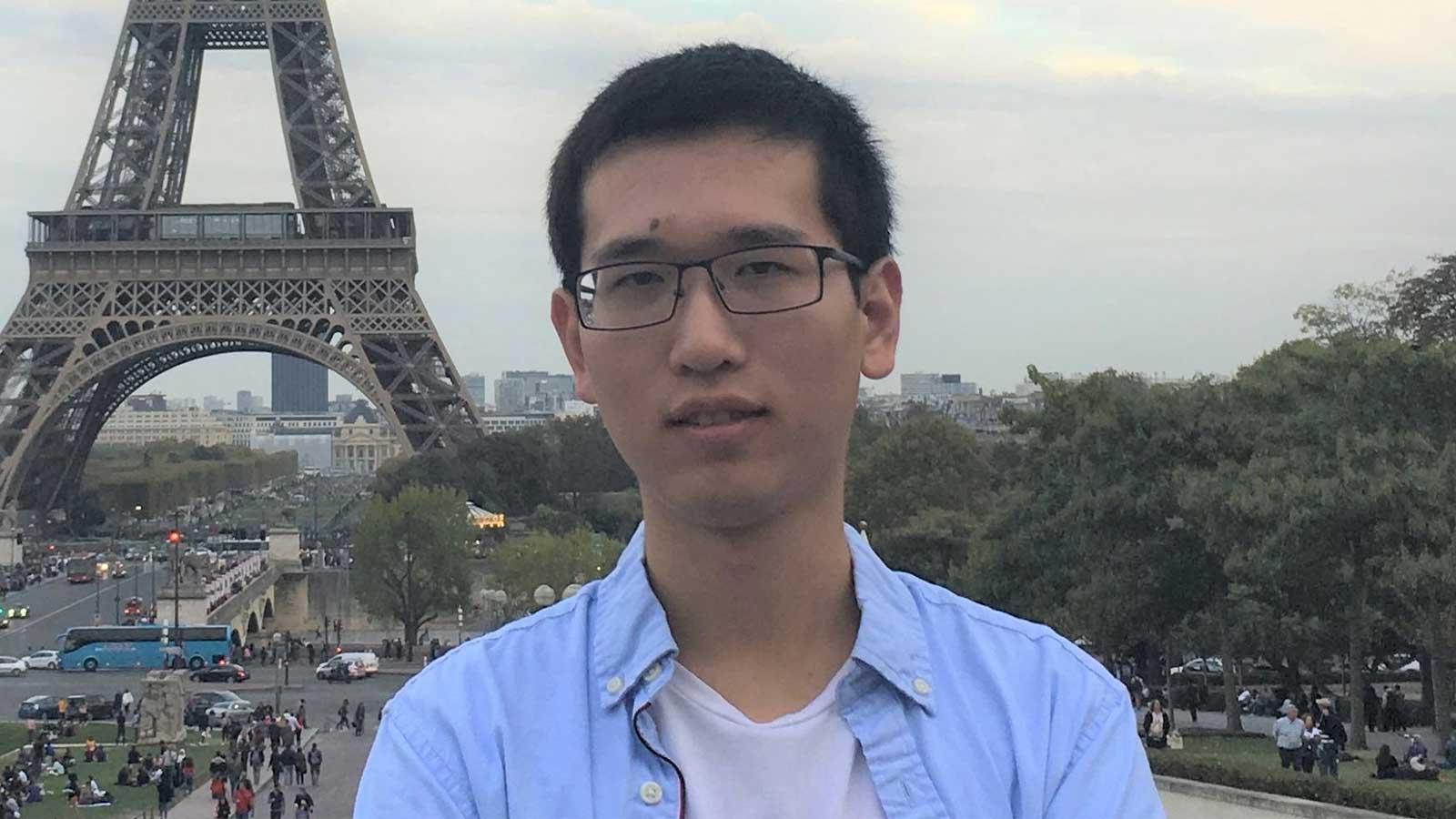In 2017, Minfei Fei began researching each of the prestigious universities that offered him a spot in their graduate programs. “It was at first quite difficult to make up my mind,” said the Rice University Master of Materials Science and NanoEngineering (MMSNE) alumnus. “I immediately fell in love with Rice’s small but lovely campus and its environment during the virtual tour. I discovered student stories on the MSNE website that described their happy and productive graduate school lives, and then I checked the faculty profiles. You know, MSNE wasn’t a big department, but every single MSNE professor’s background appealed to me.”
The small department, close connections between professors and students, and positive graduate student environment struck such a positive note with Fei that his decision became clear.
Rice MMSNE offers a unique blend of industry and research experience
“No other program offers its students opportunities to collaborate with top researchers as well as practical insights into industry by professors with years of expertise in the business. I had not decided whether to pursue an academic or an industry career, but at Rice there were ample opportunities to explore both,” he said. His decision to pursue his Ph.D. at the University of Cambridge was influenced by two of his professors, Ming Tang and Jun Lou; Fei’s research with Pulickel Ajayan strengthened his Ph.D. application.
Fei said, “My Rice advisor, Professor Ajayan, was fantastic. Professors Jun Lou and Ming Tang provided academic guidance to students in the MMSNE program, and personal advice as we considered our future options. I still email all of them –sometimes small notes on my Ph.D. journey and sometimes an academic question as if I were still at Rice. I also connect with them when I travel to the U.S. for conferences.”
In addition to working with his Rice mentors, Fei also traveled to the University of Texas at Austin to attend the CEC Annual Workshop on Electrochemistry, where he met John B. Goodenough, who won a Noble prize for his contributions to lithium ion (Li-ion) batteries. “I went to UT-Austin twice and got into a conversation with Dr. Goodenough. He was such a legend who was easy-going, inspiring, and always enthusiastic. My passion for Li-ion battery research partly originated from his spirited discussions,” said Fei.
Researching Li and Na batteries at Cambridge
Although Fei had worked at the Pacific Northwest National Laboratory as an undergraduate, he said he still lacked firsthand knowledge of how graduate life could be in an academic research lab. At Rice, he grew into a comprehensive researcher by working in the Ajayan Lab for almost two years. That preparation helped him shine as a Ph.D. student at Cambridge, where his current focus is next generation Li-ion batteries, sodium ion (Na-ion) batteries, and Li-ion battery recycling.
Fei said, “Li-ion batteries are used to power many devices from cell phones to cars. The trend is to develop lighter, smaller batteries while retaining high energy output. Two of my finished projects are a silicon-based alloy anode which provides higher energy density from the anode side, and a Li metal battery. The Li metal battery is generally regarded by both academia and industry to be the most ideal ‘next generation’ battery to meet the 500 Wh/kg goal set by the U.S. Department of Energy.
“The global demand for Li-ion batteries is outpacing the earth’s limited supply of lithium, accelerating the exploration of alternatives such as Na-ion batteries. Since sodium has two magnitudes higher natural abundance in earth’s crust than lithium, the Na-ion battery costs less; it is also compatible with the existing Li-ion battery processing line.”
The global supply of cobalt, a critical component of Li-ion batteries, was adequate for small devices like cell phones, but is quickly depleting due to the surge in electric vehicles. Cobalt is now the point of highest risk in that supply chain, prompting Fei’s third research direction: Li-ion battery recycling. He said creative recycling with environmentally friendly techniques and low energy consumption is his next focus.
Communicating complex ideas to broad audiences
Fei has presented his battery research at international conferences and won several best paper or poster awards, including the 240th Electrochemical Society (ECS 240) Annual Meeting, the 2021 International Battery Materials Association (IBA 2021) Annual Meeting, the 2021 Li-ION Conference, and the 8th International Conference on Sodium Batteries 2023 (ICNaB-2023).
He credits Rice for his successful communication skills. “In addition to the department’s communication workshops, I booked multiple coaching sessions on writing and presenting at Fondren Library,” he said. “In these one-on-one appointments, I was offered quite a lot of useful advice and tips. I also took several courses with an emphasis on leadership and presentation, like Management for Science and Engineering.
“But the biggest improvement came from my experience in the lab, where we each had to present our results and data, defend our idea, and convince Professor Ajayan. All these resources and training laid a solid foundation for my future confidence in my own ability. Now, I am comfortable talking in casual group discussions and presenting in formal academic conferences.”

